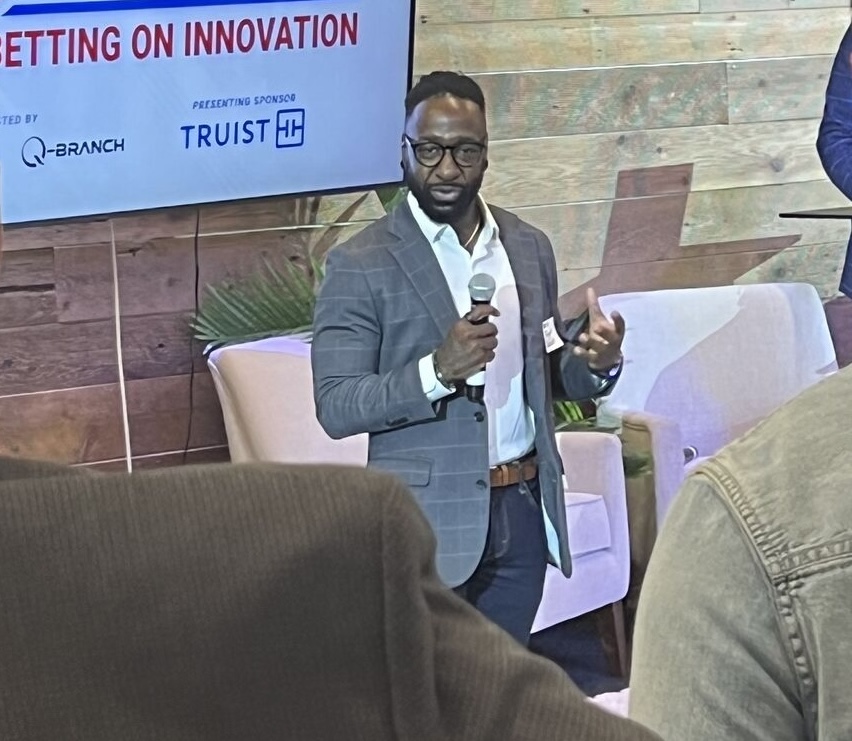Disabled founders occupy an awkward position among historically marginalized groups. When they aren’t completely overlooked or locked out of funding, they’re often treated as charity cases — ones investors seemingly deem unworthy of backing.
A 2022 report from Access2Funding, “Transforming Opportunities and Outcomes for Disabled Entrepreneurs,” reveals stark disparities: Disabled entrepreneurs are up to 400 times less likely to secure funding than their nondisabled counterparts.
This disparity is especially glaring given that 25% of small UK businesses are led by disabled or neurodivergent individuals, with nearly 90% of disabled founders surveyed believing investors did not treat them equally.
Yet this issue transcends entrepreneurship — it reflects how society at large perceives disabled people.
A Reckoning
Civil rights are never freely given—they must be constantly fought for. This universal truth underpins why the Access2Funding report mattered far beyond mere curiosity; it exposed systemic failures in a society that had shown its worst tendencies toward disabled communities.
The United Nations Committee on the Rights of Persons with Disabilities had already sounded the alarm in 2016, documenting "grave and systematic violations" of disabled people's rights in the U.K. — violations that only worsened through Brexit's upheaval and the COVID-19 pandemic's disproportionate toll.
Enough was enough. It was time for a societal reckoning with the disabled population, leading to calls for economic equity for the disabled from the government. It is far from enough, but it is a start.
This isn’t just morally dubious action from leaders, it is also leaving money on the table for investors.
Purple Dollar Signs
As the British government was forced to reevaluate its treatment of disabled citizens, so too did the entrepreneurial community.
The Purple Pound, or disposable income of disabled households, has become more and more enticing – one estimate puts the spending power at £274 billion annually. The British government found that over three-quarters of disabled people are in need of mobile technologies that will help them live independently.
This is the type of market just begging for Silicon Valley's attention. In the United States, one out of five Americans lives with a disability, which spans race, sex and gender. This also makes them the third-largest market segment in the country.
This is also reflected on a global scale. The Purple Economy is a movement looking to create an accessible and inclusive world where disabled people are fundamental economic drivers and fully integrated into every aspect of society. They estimate this community can generate $18 trillion in annual revenue.
With investors priorities shifting, disabled founders have been a big piece to entering a lucrative market. Lived experience is crucial to building a product that will resonate with the disabled community.
Funding and Beyond
Across the globe, a persistent issue for disabled founders is being looked at like charity. But this mindset may finally be changing.
Impact investing, which refers to funding ventures that generate measurable positive impact alongside financial returns, has been a growing force in the investment world.
According to a 2024 State of the Market report by the Global Impact Investing Network (GIIN), researchers found that assets allocated to impact investing strategies grew by 14% over five years – from $129 billion in 2019 to $249 billion in 2024.
Outside of funding, there are many ways to support disabled founders while creating a more accessible market.
In May 2025, the Lilac Review published a two-year report tracking the economic barriers for disabled U.K. entrepreneurs. It points to things like simplifying financial services through process redesign, offering flexible repayment terms, and replacing proof-based disability assessments with trust-based models.
The report also emphasizes inclusive product development, tailored local business support, and expanded procurement opportunities for disabled-led businesses. Additionally, it highlights the role of AI and assistive technology in improving accessibility, as well as the importance of mentorship and networking to build social capital.
When it comes to how investors can reshape their outlook and portfolio, it’s essential to review how inclusive you are to begin with:
- Auditing Accessibility: Review pitch processes, websites, and events for accessibility barriers (e.g., add captions, alt text, flexible scheduling).
- Proactively Seek Disabled Founders: Partner with advocacy organizations to source deals beyond traditional networks.
- Train Teams on Disability Inclusion: Educate partners on unconscious bias and accommodations.
- Fund Disability Innovation: Recognize assistive tech and inclusive design as high-growth markets.
- Set Public Commitments: Track and disclose disability representation in portfolios.
Supporting these entrepreneurs isn’t just about equity. By addressing accessibility gaps and actively engaging disabled founders, investors can tap into overlooked talent and transformative ideas.





